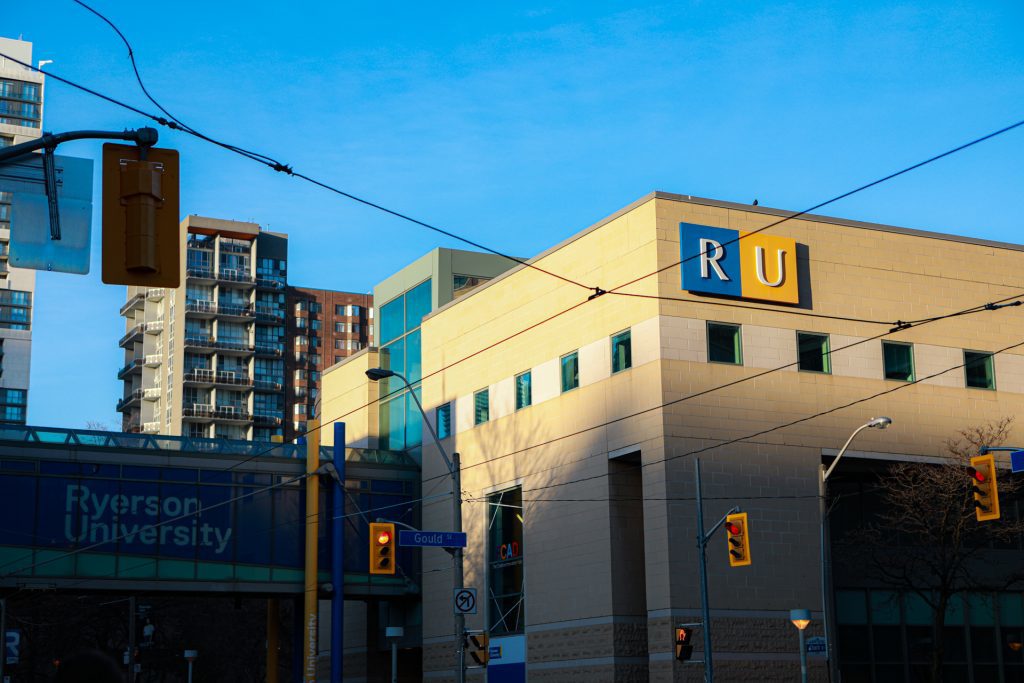The 2020 Anti-Black Racism Campus Climate Review makes 14 recommendations, but the community is still in the dark about plans to implement it

A committee created to address anti-Black racism on campus has missed its target for explaining how it plans to implement anti-racism recommendations from a report Ryerson published last summer.
In July 2020, Ryerson released the Anti-Black Racism Campus Climate Review (ABRCCR) — which makes 14 recommendations.
At the time, the committee which was created to actualize the recommendations intended to do so within a couple of years, Denise O’Neil Green, co-chair of the Presidential Implementation Committee told The Eyeopener. Further details would be provided in the fall, she added.
However, the committee has still not explained how or when it plans to implement the recommendations. Its members are not made directly available to the press.
“The Presidential Implementation Committee to Confront Anti-Black Racism is preparing an update which will be shared via Ryerson Today in the coming weeks,” said public relations representative Lindsey Craig in an email to the Ryersonian on Tuesday.
In November, O’Neil Green told Ryerson Today that the committee was in the beginning stages of “developing strategies and proposing solutions” to implement the recommendations and said updates would arrive as the work progressed.
The ABRCCR was conducted after student group Black Liberation Collective advocated for a review of anti-Black racism at Ryerson. After the report’s release, members of the group criticized it, saying it lacked accountability from the university. They said they believed Ryerson changed the report to its liking — a claim the university denies — and argued that the report included only vague recommendations that would not adequately address the needs of Black community members, The Eyeopener reported.
The committee, co-chaired by Deborah Brown, the vice-president of administration and operations, and Anver Saloojee, the assistant vice-president of Ryerson International, is working on addressing student, faculty and staff concerns separately. O’Neil Green’s focus is on recommendations about students, while Brown’s focus is on those about staff and Saloojee’s is on faculty, according to Ryerson Today.
There are six recommendations in the ABRCCR that address the student experience. The report recommends that Ryerson co-ordinate a plan to diversify its disciplines and programs; that there be campus-wide training in equity, diversity and inclusion; and that Black faculty representation “be addressed.”
Campus security should “be prioritized to positively impact Black student belonging,” with security staff trained in equity, diversity and inclusion, it says.
Further, Ryerson should enhance funding for events and meetings centred on Black students, and should create a dedicated space for them that has necessary funds for staffing and programming, it recommends.
The report makes three recommendations that address staff needs. The first is that the university conducts a comprehensive review of Black staff “compensation, grade, rank and the ways in which Black staff files are handled.”
It recommends “a process of building trust” among Black staff, involving unions and Ryerson’s senior management, and it calls for the establishment of programs for the advancement of Black staff.
The report also makes four recommendations regarding Black faculty members. Ryerson should design or enhance programs to recruit Black faculty across all programs. The university should also provide resources to current Black faculty members that would allow them to expand and experiment with new and innovative curriculum in Black studies in their departments, programs and fields, it says.
It also recommends that contract lecturers be made aware of differences between The Canadian Union of Public Employees and the Ryerson Faculty Association. Ryerson should provide contract academic staff with the tools, resources and clear guidelines for applying for tenure track positions, it adds.
Additionally, it recommends that contract faculty be given a clear sense of why their contracts are not renewed.
Finally, it recommends Ryerson create a campaign to clarify the mandate of the Vice-President’s Office of Equity and Inclusion and distinguish it from Human Resources.
